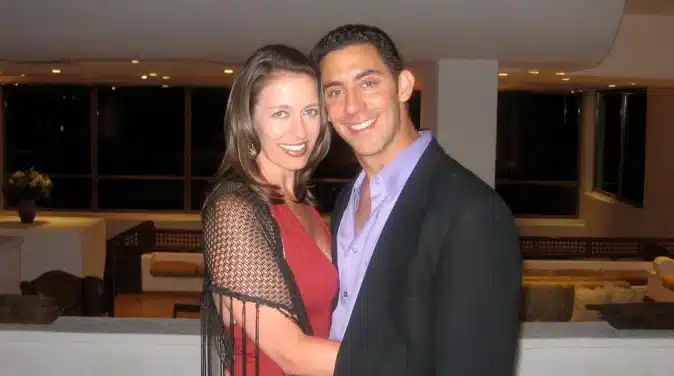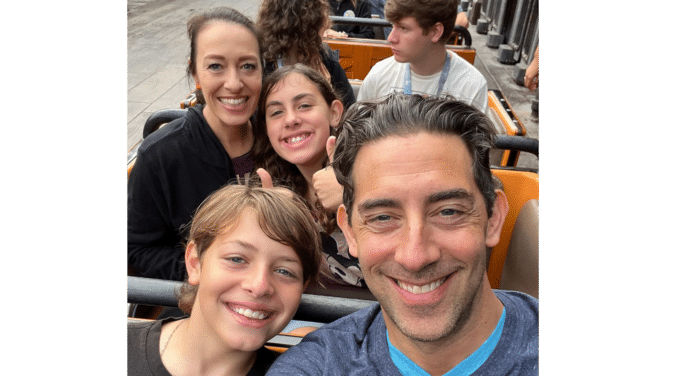Is it a Bad Sign to Not Feel Passion When You’re Engaged?

- Commitment, Marriage, Should I Stay With Him?
To be honest, I’ve never felt passion for my fiancé even when we were dating. All of the other relationships I was in were extremely unhealthy, but I was madly in love. I can’t tell if my lack of feelings for him is because I’ve just always been used to roller-coaster emotions, or if it’s because this isn’t true love.
Do partners ever get MORE passionate for each other after marriage? Or is it safe to say this is my peak level of passion? If this is it, will I end up wanting a divorce? I care about him deeply and we have a lot of the same values, but I’ve never thought “oh my god I’m so in love with him, I don’t know what I would do if we broke up”.
Also, how can I gauge whether he’s feeling the same? I don’t think he is – he’s always initiated the big moments, like becoming official, asking me to move in, getting engaged, sometimes even sooner than I would’ve liked. But it’s hard to tell how another person is really feeling about you when you don’t feel much towards them.
-Cass
Normally, when I get this question, Cass, I’ll refer back to one of these two posts:
Is it Okay to Love Someone But Not Be In Love?
Do You Have to Have Fireworks to Have a Successful Relationship?
The answers, respectively, are yes and no.
Yes, you can have a happy and loving marriage even if you didn’t start with the “in love” feeling. And no, you don’t need fireworks to have a happy marriage.
If you have a 7 chemistry and a 10 compatibility, you have a pretty sweet life.
The reason I’m taking your question today is because of the very last thing you wrote:
“…when you don’t feel much towards them.”
I’m going to take this opportunity to try and explain something that often gets lost in translation when I hear readers quote my advice back to me.
My advice: stop compromising on character, kindness, consistency, communication and commitment. Feel free to compromise on everything else.
False translation: Settle on someone you’re not attracted to.
Actual translation: Compromise and settling both involve tradeoffs; the difference is how you feel about it afterward. You compromise your way into happiness. You settle your way into misery.
In other words, if you’re going to get married, you’d BETTER be happy about it. If you’re not happy about getting married, you probably shouldn’t get married.
In other words, if you’re going to get married, you’d BETTER be happy about it. If you’re not happy about getting married, you probably shouldn’t get married.
Sounds to me, Cass, like you’re working off the false translation.
I’ll use my own marriage as an example of how this works.
To break down your question:
Do partners ever get MORE passionate for each other after marriage? Or is it safe to say this is my peak level of passion?
“Passion” is a loaded and subjective word. It usually implies physical passion above all. And yes, for the most part, your physical passion will peak in the first 18 months you’re dating. Real life is how your relationship looks AFTERWARDS – which is why I say not to get married for two to three years.
I care about him deeply and we have a lot of the same values, but I’ve never thought “oh my god I’m so in love with him, I don’t know what I would do if we broke up”.
If my girlfriend and I broke up after sixteen months of dating in 2008, I would have survived. I know this because I survived 35 years of being single and was easily able to imagine myself dating other women. My decision to marry my girlfriend wasn’t based on blind passion but, rather, on the knowledge that after 300 previous dates, this was by far the easiest, healthiest relationship I’d ever had. Were there women I was more physically attracted to? Sure. Intellectually attracted to? Yep. Had more in common? Naturally.
So why did I marry my wife? Because out of all of those women about whom I felt more “passionate,” a total of ZERO of them proved to be a compatible girlfriend.
So, to parse your original question, did I become more “passionate” about my wife after marriage? In terms of how often we had sex, no – we tapered off from an “every time we see each other” to about a steady once a week after we moved in together.
But do I LOVE my wife more now than when we got married?
When we got married, she was a super cool girlfriend – the only person I’d ever met who accepted me in full without trying to change me. My head wasn’t in the clouds but I was happy and appreciative. That’s why I proposed. That was 11 years ago. We have 11 years of memories built up to fortify our relationship every day. In other words, I loved her when we got married, but I fell more deeply in love with her as time passed – not based on passion but based on the fact that we’ve built this incredible life together.
Today, my wife is my favorite person in the world. I couldn’t imagine living without her. We are raising two kids. We have 30,000 photos in our iPhoto library documenting all of it. We honestly feel like the luckiest people on earth and never think that we’d be more happily married to anyone else. And if that’s the case, what difference does it make that she dated a 6’7” guy with a Masters Degree before she met me? Or that her ex-husband was really connected in the entertainment industry. Or that she had a thing for military men and Europeans at various points in time. She married me. I win. WE win.
Sorry to hijack your post, Cass, but your relationship sounds nothing like my relationship.
If you “don’t feel much” towards your fiance, he shouldn’t be your fiance.
But if you’re reading this and wondering if your fiance is the wrong guy just because you’re not wildly passionate about him, I want to give you a definitive answer:
Good relationships get stronger over time.
Bad relationships peak early and go downhill over time.
Make sure that you’re in a good relationship before you get married and you’ll never regret being married.
Marry someone who isn’t your favorite person and you’ll likely feel trapped and miserable.
You know what to do. The question is whether you’re brave enough to do it.









Comments